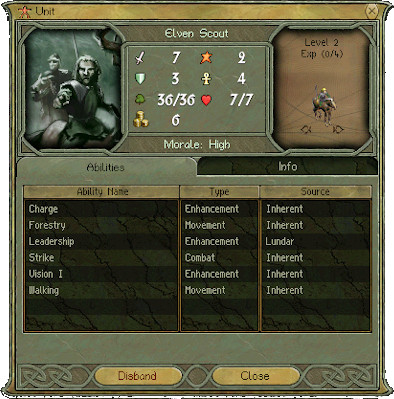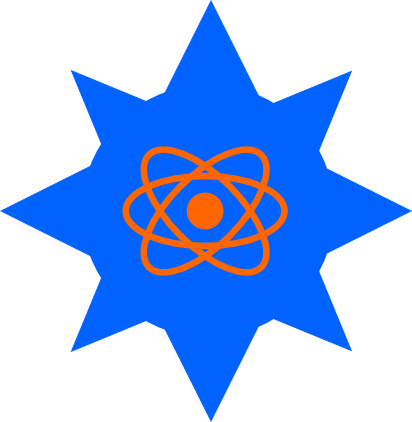Units
Odds are every strategy game ever created features units! I assume the term comes from ‘military unit’, which probably means the term has its origin in war games.
In strategy games a unit typically refers to a single soldier or vehicle. These units can usually be invividually controlled. If you see a game where units are not individually controlled you are likely dealing with a one of the derivatives of a pure unit-based system like Unit: Formation or Unit: Stack.
So what makes a unit? Let’s look at this unit details screen from Age of Wonders to get some ideas:

You can see the unit has a type: Elven Scout. It has several numerical statistics:
- Attack: 7
- Damage: 2
- Defense: 3
- Magic Resistance: 4
- Movement Points: 36⁄36
- Health: 7⁄7
- Upkeep: 6
Then there are also several text abilities:
- Charge: Extra damage on first attack based on distance moved.
- Forestry: Cheaper movement through forest tiles.
- Leadership: Extra attack / damage to other units in the same army.
- Strike: Ability to melee attack enemy units.
- Vision: Reveals the map around it as it moves.
- Walking: Can move around the map on solid ground tiles.
So I’ve listed a bunch of things, but you might still be asking - what is a unit? I would define it is an individually controllable, (usually) easily replacable piece in a game that can be used to defend yourself or attack your enemies. What I hope is clear from the listings above is how nicely a unit fits into an ECS game design - you can compose several systems to build unique units and the flexibility of ECS should allow you to easily build a large variety of units with a wide variety of abilities:
- Combat System: Attack, Damage, Defense, Strike, Charge, Leadership
- Movement System: Movement points, Walking, Forestry
- Exploration System: Vision
- Magic System: Magic Resistance
- Health System: Health
- Economic System: Upkeep
ECS Design
No specific code for this one: a unit is built by combining all of the other systems.
